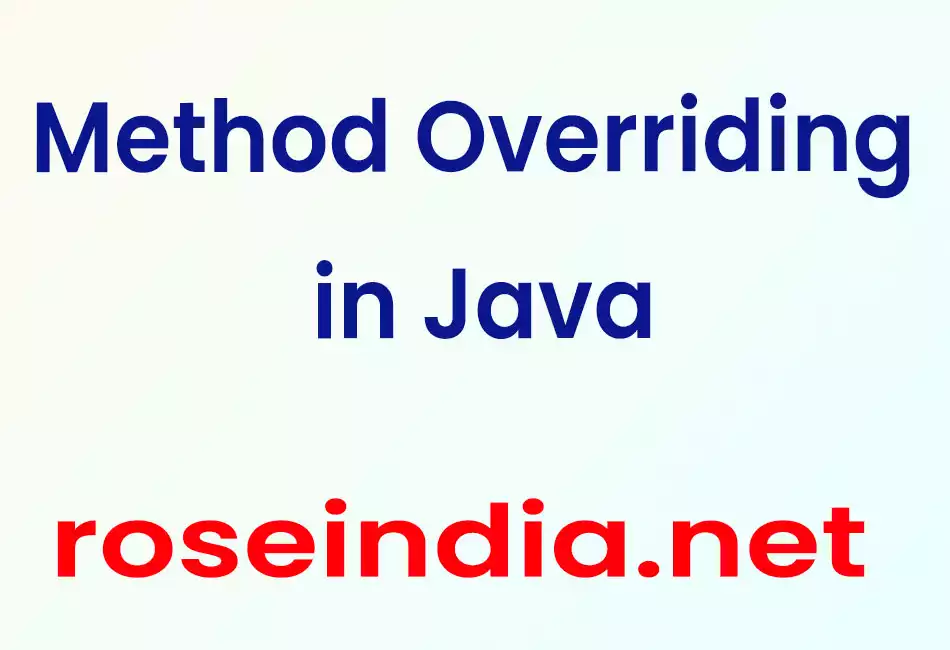Method Overriding in Java means a Subclass uses extends keyword to override a super class method. In Overriding both subclass and superclass must have same parameters. Method Overriding is used so that a subclass can implement a parent class method and then modify the parent class as needed.

Method Overriding in Java means a Subclass uses extends keyword to override a super class method. In Overriding both subclass and superclass must have same parameters.
Method Overriding in Java is used so that a subclass can implement a parent class method and then modify the parent class as needed.
While using Method Overriding, following points should be kept in mind:
- Overridden method must be similar to argument list.
- Return types and constructor parameters of methods must match.
- The access level of sub class cannot be more restrictive than that of super class.
- Final method cannot be overridden.
- Static method cannot be overridden but can be re-declared.
- Instance methods can be overridden only if they are inherited by the subclass.
Example of Method Overriding in Java :
package Overriding;
class A {
public void call() {
System.out.println("Print of A ");
}
}
class AB extends A {
public void call(String string) {
System.out.println("Print of AB ");
}
}
class AC extends A {
public void call(String string) {
System.out.println("Print of AC ");
}
}
public class Example2 {
public static void main(String[] args) {
A a = new A();
AB ab = new AB();
AC ac = new AC();
//a.call();
ab.call("");
ac.call("");
}
}
Output:
Print of AB
Print of AC
